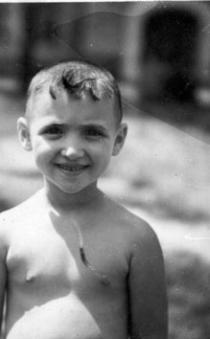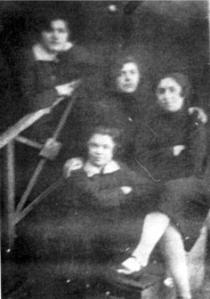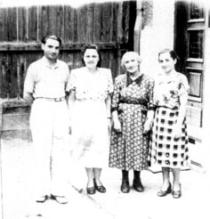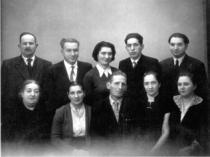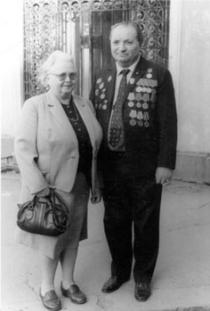That’s me, photographed in Poyana in the summer of 1932. I am six years old here.
I was born on 5th August 1926 and was named after my grandfather on my father’s side. Berl in Hebrew means ‘bear.’ During the Soviet regime I was mostly called Boris.
Poyana was a Moldovan village. It had a Moldovan and Jewish population. There were about 20 Jewish families in the village. Some of them were handicraftsmen like my uncle Ide-Leib. There were tailors, roofers and carpenters. Some Jews owned stores and the rest of them rented fields to grow tobacco like my father and his brother Yankel.
Tobacco is a very demanding plant. It required constant care to grow. After harvesting it had to be dried. Dried tobacco leaves were sold to wholesalers. This wasn’t a profitable business. Our family was one of the poorest in the village. In cold summers tobacco plants died in the field. In rainy falls tobacco leaves got rotten. Therefore, my father didn’t usually earn enough money from tobacco sales to last until the next season and there were periods when we were starving.
My mother was a housewife, but she also helped our father in the field. We, children, were helping in the field, too. There was enough work for all members of the family. We had to water the tobacco plants, turn up the soil, weed and collect harmful bugs from bushes. In the fall we gathered leaves and took them home, so they could dry on a special wooden frame in the yard. We hung tufts of leaves on this frame, but when it rained we had to take it promptly to the shed. If the leaves got wet they began to rot and were useless.
When I was five I already went to work in the field at 5 o’clock in the morning. We didn’t wear shoes when working in the field. Shoes were expensive, so we worked barefoot. We got our feet injured by dry branches. Injuries developed into blisters and abscesses. There was no medical facility or drugstore in the village and our mother used to heal abscesses with baked onions.
There was no cheder in our village. When I turned six my father began to teach me Hebrew, but I wasn’t doing well. Probably it was because my father worked a lot and got very tired or I was a poor student, but our classes were no success. Later my mother hired a teacher of Hebrew for me and my sisters to teach us at home. He lived in Ochedar. After the war this teacher was a cantor at the synagogue in Chernovtsy.

